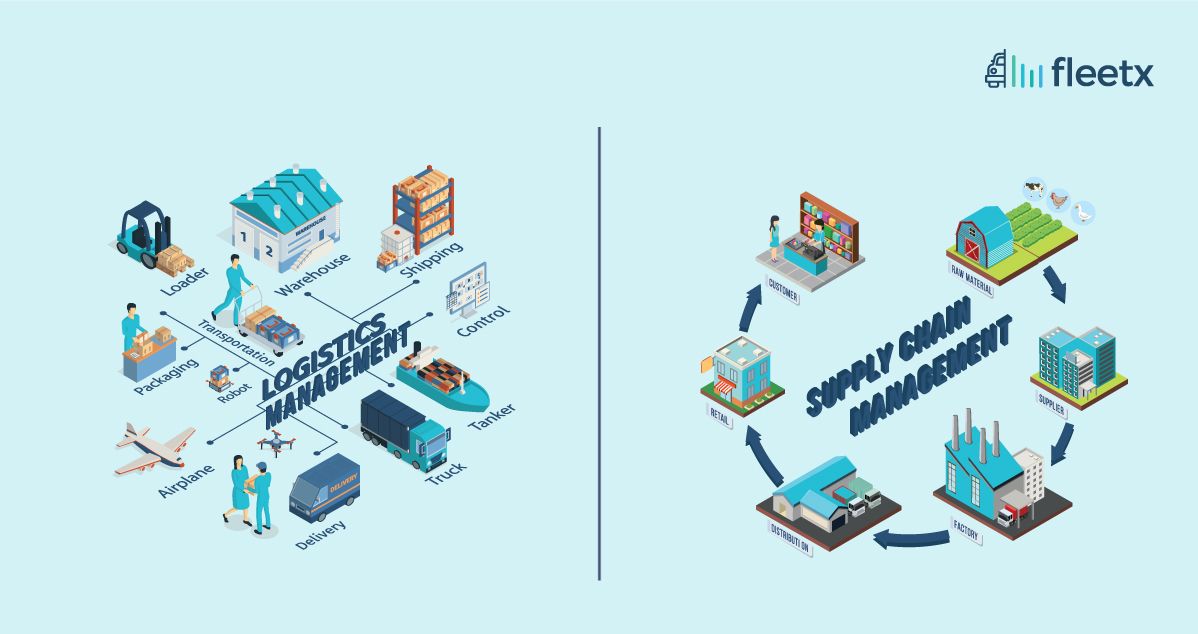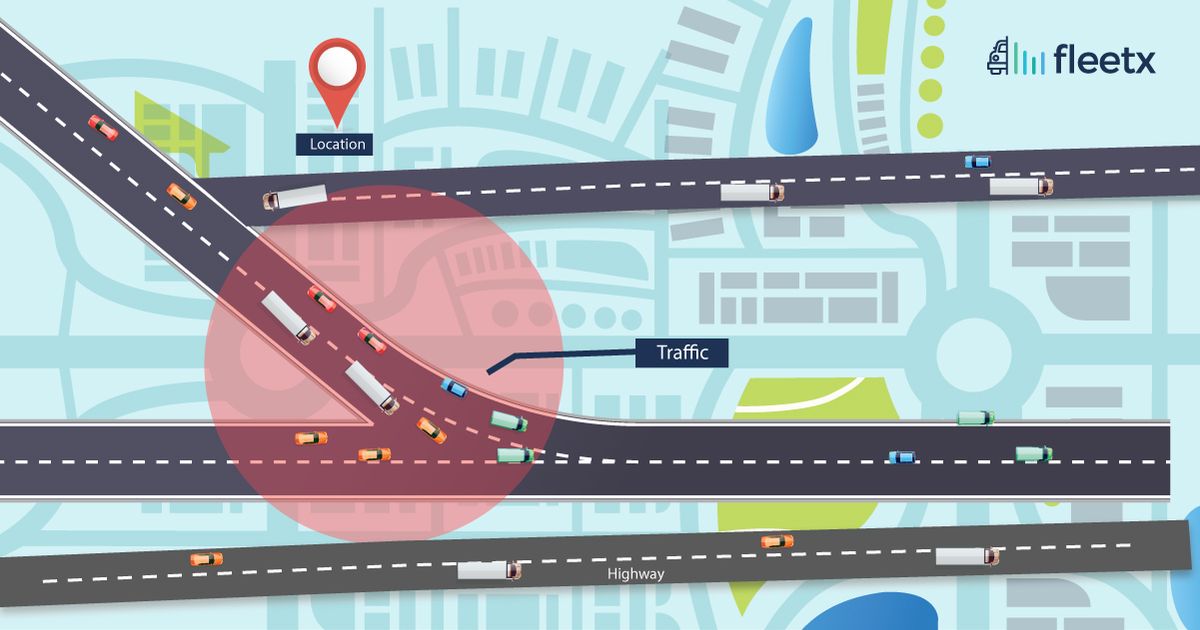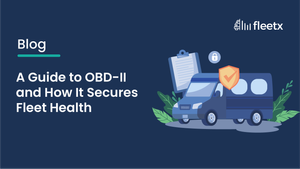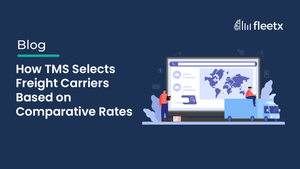
Have you ever wondered where the things you use every day come from? We are aware that everything can not be acquired everywhere in the world, but we are still able to obtain the desired item. Behind it all, a fleet manager is in charge of keeping track of all the small and large aspects of the goods that are being delivered and attempting to get to us.
A major logistics component of every business is fleet management. Truck fleets must be well-run and managed by fleet managers to ensure optimal performance. Being a fleet manager may be a fulfilling job since you often encounter new problems and are in charge of managing expensive assets in a dynamic environment but it's not an easy task, there are a lot of roles and responsibilities above them.
Figuring out what it takes to be a fleet manager and looking into their qualifications might help you decide whether this career path fits with your talents and objectives. We discuss what the job requires and how to become a successful fleet manager.
What is a fleet manager?
All aspects of managing a company's fleets are within the scope of the fleet manager. Fleet managers assist in navigating the specific responsibilities and difficulties that each fleet faces. In order to ensure that a business operates effectively, safely, and in accordance with the law, a fleet manager is responsible for overseeing fleet operations inside the organization.
The cost of the vehicles that their firms own or lease must be directed and managed by the fleet managers. They may also design driving schedules and develop rules to handle vehicle utilization and driver behavior depending on organizational requirements.
An overview of a fleet manager's responsibility
A fleet manager is in charge of overseeing the daily operations of a company's fleet of vehicles.This entails ensuring that all vehicles are properly maintained, monitored, insured, and operated by drivers in a safe manner. The cost-effectiveness of the company's vehicle utilization and its total environmental impact may also be reviewed by a fleet manager while keeping costs in mind.
They are in charge of keeping an inventory, tracking vehicles in real-time, securing timely insurance, controlling fuel and vehicle costs, keeping an eye on the vehicles, and considering all of their requirements. Some of the major duties and responsibilities of a fleet manager are as follows:
Fleet vehicle maintenance: Keeping accurate records of all information relevant to a fleet, including historical data, is one of a fleet manager's key tasks. Fleet managers should also make sure they have the correct number of vehicles, choosing the best vehicles, and figuring out the best method to finance a fleet .They must acquire or lease vehicles depending on specific businesses transportation needs, plan routine maintenance, and prioritize driver safety. They are also negotiators.
Maintenance Routines: Maintenance of vehicles is the responsibility of fleet management. For carrying out their numerous tasks, they make sure their cars are in top condition.
Licencing, registration, and compliance: Fleet managers are responsible for managing all fleet registrations, licencing, and compliance, which is a challenging undertaking given that various fleets have varying renewal dates. 27.2% of trucking businesses struggle with HOS (Hours of Service) compliance, according to a 2019 ATRI research. Another research claims that there are issues with the MV Act 1998's implementation of registration and licensing, which is yet another significant daily task a fleet manager must manage.
Driver management: Managing the drivers is one of the basic responsibilities of fleet managers. This covers recruiting, training, driver relationships, safety, and planning of the route.
Boost operational efficiency: Fleet managers should monitor and evaluate activities so as to increase overall operational efficiency. They are the examiners of the collected data.
Should be pre-planned and prepared for all the upcoming: Fleet managers need to be aware of the various problems that might delay the delivery of products and services by their fleets. They must thus create situational strategies as issues emerge. They need to have well-thought-out strategies and be ready for everything, including car breakdowns and accidents.
How is the fleet manager role changing with evolving supply chain?
Vehicle types and emerging technology are raising the bar for fleet manager skill sets. Knowledge in technology, data utilization, analytics, and strategic planning is becoming more and more in demand. Additional abilities a fleet manager needs are as follows:
Financial and technological expertise: Understanding how to employ software and fleet technologies, such as telematics and dash cameras, is essential for monitoring performance trends, reducing downtime, and offering insightful data about the vehicle's operation. When managing fleets, keeping data reports, being aware of all expenditures, having a general understanding of the fleet budget, and responding to the information presented are crucial.
Managing business: Avoiding penalties and maximizing safety will be made possible by maintaining cooperative relationships with internal and external stakeholders that have an influence on fleet operations and by remaining current with legal requirements, business and driver rules, and regulatory needs.
What are some of the main reasons for inefficiency in fleet managers?
Fleet managers are required to handle many projects at once and frequently get involved in many tasks. Additionally, it has been shown that fleet managers are frequently allowed to handle administrative activities on their own rather than having them outsourced. These responsibilities include registration, fuel cards, invoicing, driver expenses, pricing, and ordering. Fleet managers have little or no time to devote to developing strategies to improve their overall fleet operations and customer service because of all these obligations.
Fleet managers are unaware of all the fleet management support systems and tools that are accessible to them that may help them save time and effort. Thus, they lack the necessary technologies and experience serious organizational issues.
Fleet managers may discover ideal vehicles, driver distraction, and vehicle maintenance problems, which result in maintenance expenses, by using services like telematics, video telematics, fleet management software, and route planning tools.
How to Become a successful Fleet Manager
Recognize your passion: Before becoming a fleet manager, have some expertise in business administration or automotive technology. Additionally, you may get some expertise working on automobiles or trucks.
Obtain a fleet manager certificate: Get a bachelor's degree in business, logistics, or transportation to work as a fleet manager. An advanced degree is also beneficial. Numerous certificates in supply chain management, logistics, and transportation are available from the Chartered Institute of Logistics and Transport.
Get a job: If you already have expertise in the field, it will be simpler for you to obtain an entry-level employment. Before looking for employment as a manager or supervisor of a fleet department at an auto dealership or trucking firm, spend some time developing your CV if you don't already have one. You could get practical knowledge and insight into what it takes to work in the industry from this.
Recognize the levels: Get some experience under your belt before taking on greater responsibility.
Conclusion
By 2025, MarketsandMarkets predicts that the worldwide fleet management market will reach 34 billion dollars. By reducing expenses, making cost cuts, and guiding policies that have an influence on revenue and the bottom line, fleet managers will continue to play a greater and more important role in businesses. Fleet managers will still be important members of organizations and appreciated contributors.
Fleetx has taken initiative via Fleetx academy, and its end goal is to train and educate fleet managers and aspiring fleet managers to contribute towards sustainable logistics operations and expand the sustainable logistics operation all over the world. This initiative will help fleet managers to upkeep, secure and preserve welfare of their company’s fleet. The fleet is dependent on fleet managers, and it depends on technology to be
at its peak performance and Fleetx will enable them to contribute to the process of India’s logistics development.
What does a fleet manager do?
A fleet manager is responsible for managing the operations, costs, vehicle usage, external and internal policy, license, compliance, and overall performance of all commercial vehicles and driver safety.
Keeping in mind fleet management KPI's, fleet managers also play a part in a company's human resources, customer satisfaction, and financial-related activities while using cost-effective methods in addition to operational issues.
What challenges do fleet managers face today?
The challenges faced by fleet managers are:
- Route planning
- Driver shortage
- Environmental regulations
- Increased fuel theft and prices
- Autonomous Vehicles
- Driver Behavior
- False Insurance claims
- License & Compliance renewals
Technology offers fleet managers with useful tools for keeping an eye on the drivers and the vehicles, as well as provides data on maintenance records, warranty status, optimum routes, end-to-end visibility, and upcoming repair or service.







